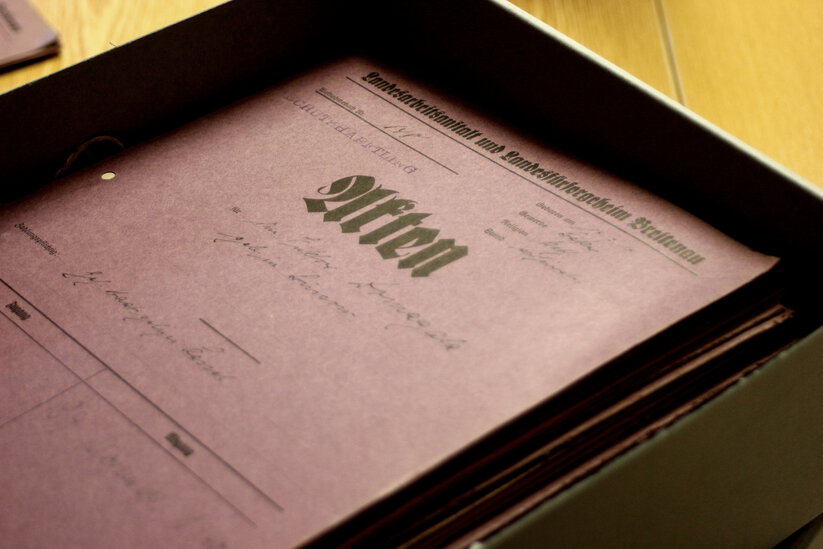Archive and Collection
Breitenau Memorial originated from a research project conducted by the University of Kassel (Gesamthochschule Kassel at the time). In the late 1970s, Professor of Educational Science Dietfrid Krause-Vilmar discovered extensive files at the Breitenau state workhouse (Landesarbeitsanstalt). These included almost 3,000 individual case files of Gestapo prisoners of the work education camp (Arbeitserziehungslager) as well as three books containing admission records. These files, which still remained intact in the basement of the former administrative building of the workhouse, were recorded and evaluated throughout the following years with the crucial support of the state welfare association archives (
Archiv des Landeswohlfahrtsverbandes
, LWV). As one of the legal successors of the district association (Bezirksverband), he is the owner of the files and has made them available to Breitenau Memorial as a permanent loan for many years. Research on the prisoner files can be conducted via the archival information system Arcinsys of the state of Hesse. This is also where one can find a registry of thematic and personal files of the state workhouse as well as individual case files of the prisoners of the workhouse and girls' home (Mädchenheim). The physical files are located at the LWV archives.The individual case files of the prisoners of the Breitenau work education camp were an exceptional find because they provide a documented glimpse into the persecution of the prisoners beyond their personal descriptions. Personal letters, which provide insight into the daily life of the camp and the concerns of these detained peoples, also remain intact. Gestapo prisoner files are therefore foundational in the work of the memorial. In addition to the original archives, the memorial archive also includes a larger collection of file copies from other archives as well as photos, correspondence, eyewitness accounts and historical objects. The entire archive collection is recorded in a database.
Our archive and collection are open to persecuted peoples and their relatives, interested parties, scientists, college and university students as well as school pupils. We are always happy to help you with your research to the best extent possible. Please notify us of your research plans in writing via e-mail.
